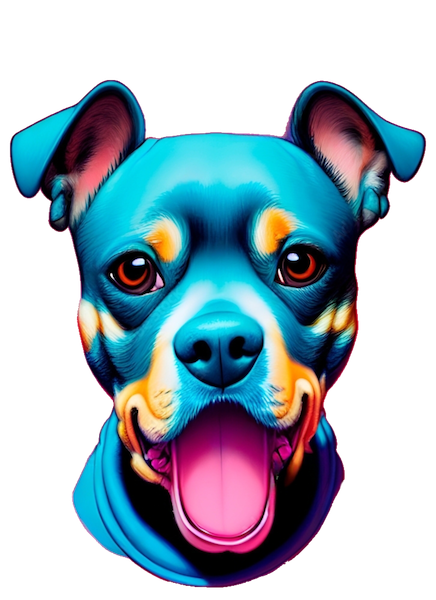I Think My Dog Has Autism: 3 Major Signs (But Stop Worrying)
- Posted 6 years ago
- Behaviour
Canine autism has become one of the dog world’s more intriguing debates in recent years. Some camps acknowledge it as a bona fide condition. Others are reluctant to label autistic behavior as autism. While the semantics are up for debate, there is every reason to believe dog autism does exist.
The Scientific Case for Autism
Current scientific study on dogs’ brains has concluded that autism can exist on a canine level. They believe the condition is due to a lack of mirroring neurons in the canine mind. It is also thought that the condition is rare, which may be why most veterinarians prefer to refer to the condition as a canine dysfunctional behavior as opposed to straight-up autism.
Studies also conclude that the condition is idiopathic, meaning its cause is unknown. It has also been determined that the condition is congenital, meaning that dogs are born with it and cannot develop it over time. This latter determination fuels the belief that the condition is something that a dog can inherit from a parent or other relative.
Furthermore, there have been studies that indicate that a dog can inherit autism if their parents have been exposed to different toxins. Studies also point to parents that received unnecessary vaccinations as a potential cause of the condition. These particular studies tie in with the prevailing notion that over-vaccinating a dog can be a dangerous practice.
How do I Know if My Dog is Autistic?
It could be a difficult challenge to figure out if your four-legged friend has autism. The symptoms of the condition are primarily behavioral, including actions that may look obsessive/compulsive in nature. For instance, you may see intricate, ritualistic behavior from your pooch that repeats itself as a daily routine.
Behavioral Issues that Could Be Signs of Dog Autism
Some of the other indicators behind canine autism are remarkably similar to the symptoms that traditionally mark autism in human beings. These symptoms are present at birth – not surprising since the condition is congenital. However, they may not be recognizable or pronounced until the dog gets older.
Awkward social interaction may be a prime indicator of canine autism. This sense of discomfort and unease can manifest itself with other dogs or even with their owner. Warning signs associated with this symptom include withdrawing from social interactions and a lack of willingness to come to you.
A dog failing to adequately express emotion could also be a prevailing sign of autism. This is not a universal trait of autistic dogs, but some pooches that have the condition won’t be able to succinctly communicate with you whether or not they are happy, sad, frightened, or excited. In some cases, they could just remain stoic and emotion-free.
An autistic pooch may also struggle with showing any signs of enthusiasm or energy for long periods of time. While all dogs do get tired, dogs that have autism may not “bounce back” with a measure of energy after a round of noticeable down time. This may be somewhat easier for owners to detect in breeds that are typically marked by high energy levels.
Is There Anything I Can Do For My Dog if He Has Autism?

As of right now, there is no cure for autism. However, if you suspect that your dog suffers from canine autism, you’ll want to take your pooch to the vet for an examination. While your vet may be reluctant to refer to the condition as autism, he or she may be able to recommend various therapies or treatments that could help your dog live at ease with his condition.
And even if your dog cannot express emotions all that well, it’s important that you still shower him with plenty of love and attention. They may not be able to return the favor per se, but rest assured that your affection will make them feel safe and secure, which is of the utmost of importance to a dog with canine autism. You should also keep any changes to your dog’s life or routine to a minimum as they may be able to cope sufficiently with alterations.
It’s Tough, but Noble
Owning an autistic dog can be difficult and ripe with unique challenges. However, it is also a rather noble act of canine-centric kindness. Above all of the challenges that crop up in this situation, know that you are providing love to a dog that needs affection, something that makes owning such a special pooch worthwhile.
Visit our brand new meeting place at Share Your Pet: https://shareyourpet.org
Pet Sharing. Etsy for Pets. Get paid to care for pets.
Start your pet business on Share Your Pet.
Follow us on Twitter: https://twitter.com/shareyourpet01
